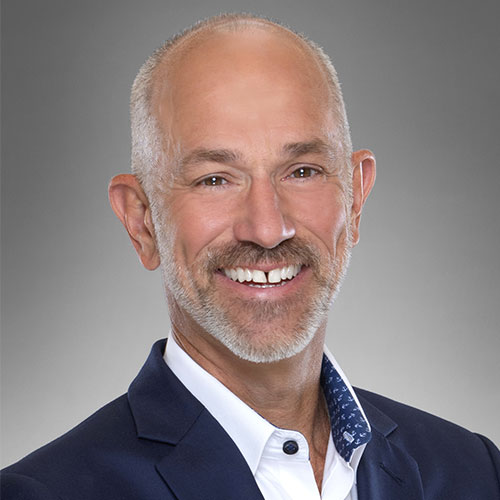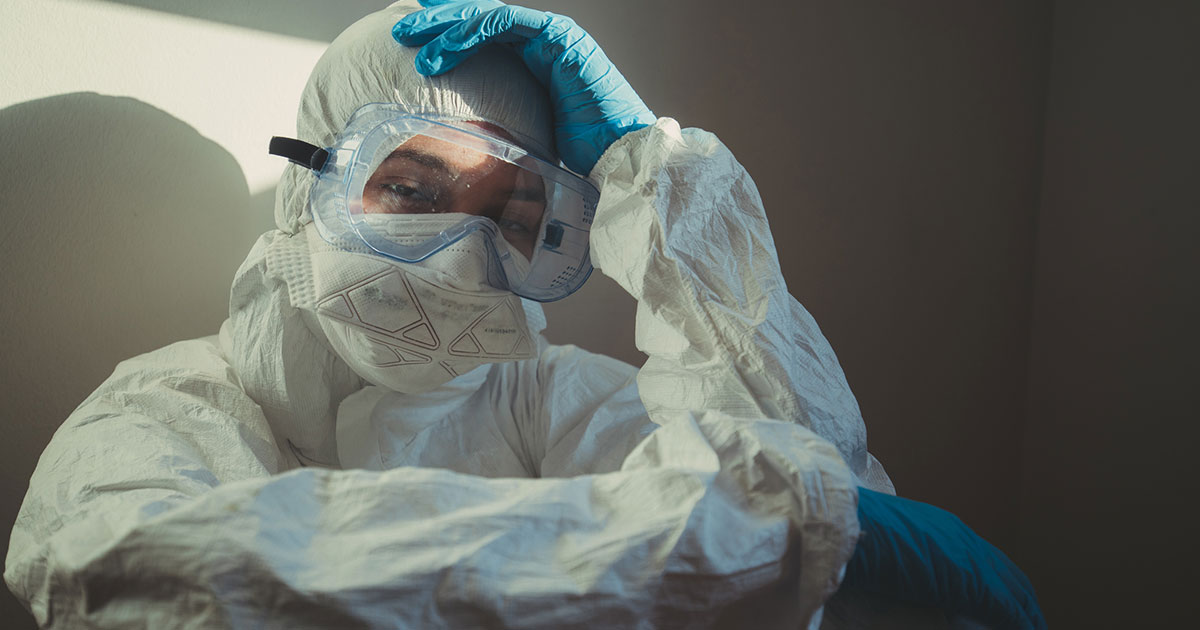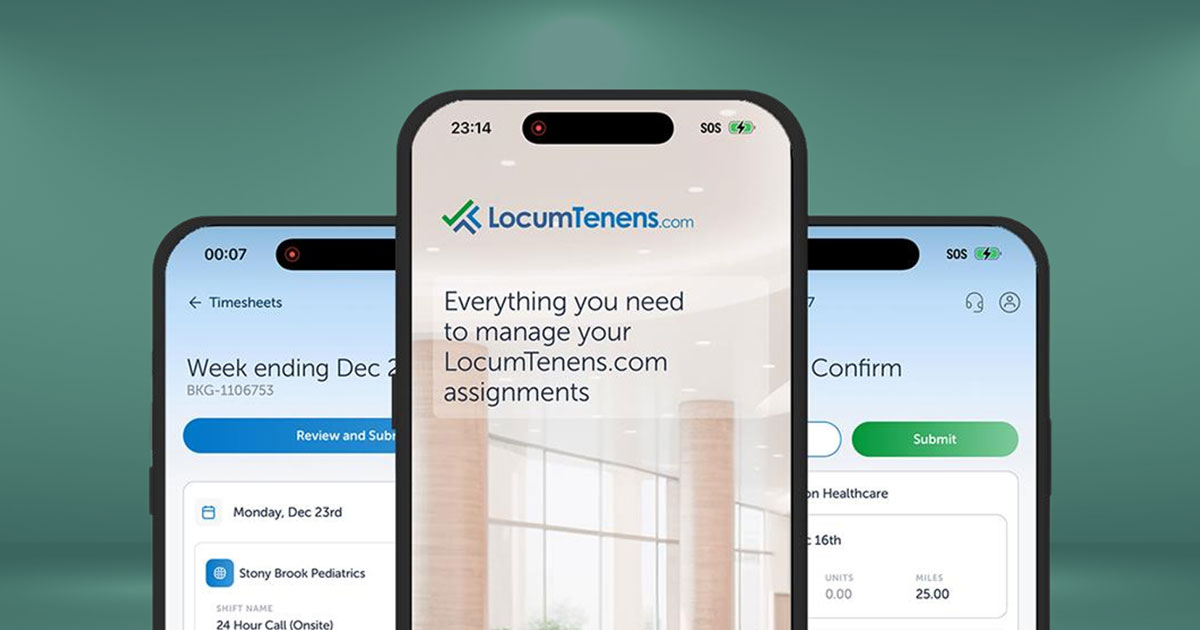Preparing for the Next Crisis: Clinician Mental Health
The pandemic prompted increased discussion about the need for mental healthcare for the general public. Isolation can trigger or worsen depression. Fear of contracting the virus or losing a loved one heightens anxiety. In a recent LocumTenens.com survey, 61% of clinician respondents reported they expect to see more mental health issues arise in their patients post-COVID-19. Addressing the mental health of the general public is also critical, but we can’t forget about the mental health needs of our medical professionals. In that same survey, 52% of clinician respondents reported an increase in stress, burnout or mental health issues due to the pandemic. COVID-19 isn’t the cause of the ongoing clinician behavioral health and burnout crisis, but it’s a catalyst.
Physician burnout has been an issue long before COVID-19 consumed an already overburdened healthcare system. According to a Medscape report published in January 2020, 42% of physicians were already experiencing burnout, with symptoms including exhaustion and decreased job performance. This, coupled with the mental health issues that will inevitably arise from the increased stress and fear clinicians are currently experiencing, will be catastrophic, not only for themselves but for patients and the healthcare system. If there’s a silver lining, perhaps it’s COVID-19 will be a turning point, encouraging organizations to better care for their clinicians the way clinicians have been caring for their patients all along, often to their own detriment. And perhaps COVID-19 spurring the now widespread usage of telehealth will make mental healthcare more accessible for both clinicians and the public in the future.
Many working in the healthcare industry have long viewed telemedicine as the solution to issues involving access to care. But not everyone has always been fully on board, and the recent uptick in demand and scrambling of organizations to adopt telehealth services has also illuminated another issue: in healthcare, we too often take a reactive approach.
It’s time we take a proactive approach to treating the mental health of our clinicians so when we emerge successfully on the other side of the COVID-19 crisis, we’re fully prepared to support them in the ways they desperately need. How we care for clinicians will look different at every organization, but a good first step is reducing the stigma around mental and behavioral health. Caring for clinicians could also involve organizations facilitating telepsychiatry or telepsychology services for those who are interested, or it could mean organizations continuing to offer telehealth services to patients. This would allow clinicians to treat patients, and receive care themselves, from the comfort of their own homes, avoiding the increased stress that comes with a commute and being physically present at a facility.
COVID-19 will change the healthcare landscape forever, altering not only how we treat patients but also how we care for our frontline healthcare workers. It’s impossible to predict what life will look like until we come out on the other end of the crisis, but one thing is certain – telehealth will likely remain the first line of defense in caring for both patients and providers. Let’s make sure we’re ready.

About the author
Kevin Thill
Kevin's career with LocumTenens.com began in 1998 when he was hired as a researcher for the psychiatry division. Since that time, Kevin has transitioned through responsibilities in the Psychiatry division as a sales account executive, managing director, partner, vice president and ultimately senior vice president. Throughout his career here, Kevin’s impact has been extensive including launching the Neurology division and assuming responsibilities for other areas such as the Account Representative team as well as leading AdvancedPractice.com. Kevin was also an integral part of initiating the Virtual Medical Staff business and is heavily involved with the operations of the company’s proprietary database. Kevin earned a Bachelor’s degree from the University of Northern Iowa.





